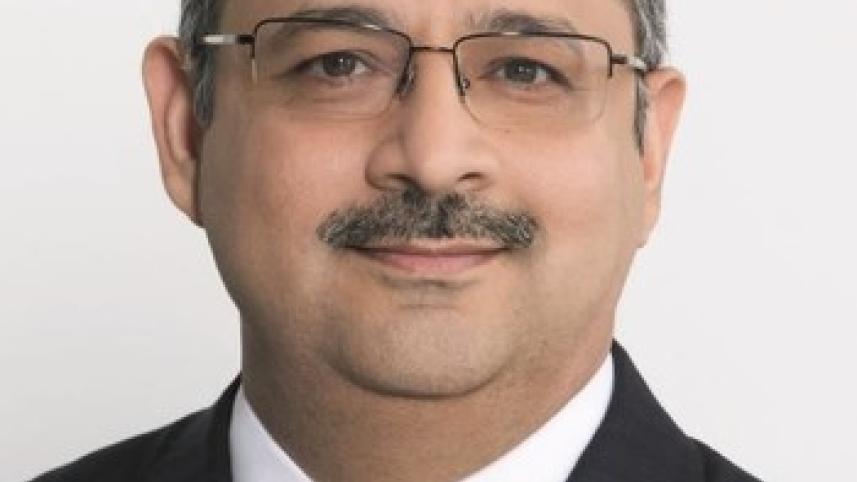Friendly policies needed to attract more investment

Bangladesh needs to ensure uninterrupted power supply, a proactive investment authority and proper enforcement of policies to attract foreign investors, said a top official of Linde.
Sanjiv Lamba, chief operating officer for Asia Pacific at Linde Group, a leading industrial and medical gas producer globally, said, despite some constraints, he prefers Bangladesh as an investment destination.
"Bangladeshi people are very passionate, productive and want a change. Lots of new developments are taking place along with new services," he said.
He was in Dhaka last month at the launch of the construction of a new air-separation unit of Linde Bangladesh at Rupganj in Narayanganj for about Tk 120 crore.
Once the new unit is completed in 2017, the plant will produce around 100 tonnes of liquefied gas a day, making it the largest liquid gas producing air-separation unit in Bangladesh.
The plant will more than double Linde's existing production capacity, strengthening its position as the leading player in Bangladesh.
It will provide a supply of liquefied gases and related solutions to the healthcare, food and beverage, fabrication, pharmaceuticals, shipbuilding and ship recycling industries.
A high-tech cylinder filling site will also be built in Rupganj to provide a range of products to customers across all market segments.
“By investing in this country, Linde demonstrates that it has faith in Bangladesh and its market,” Lamba told The Daily Star in an interview.
“I hope this venture will serve as a successful example of such investments, which, in turn, can help attract other multi-national companies,” he added.
The company invested Tk 120 crore in Bangladesh in the last five years. Its investment will stand at Tk 160 crore in 2015-16.
“This is a big investment in Linde’s standards, and is a reflection of our expectation from the market,” Lamba said.
“We have not invested here for the short term. We are looking for long-term relations.”
Lamba, also an executive board member of the company, said he talked to a number of clients in Bangladesh who are optimistic about growth prospects.
He said he feels the current stability in Bangladesh is a very good signal to investors, and if policymakers can hear a little more of the investors’ requirements, “you will see a lot more foreign direct investment into Bangladesh.”
Three factors that discourage the existing and the potential foreign investors are inadequate energy, red tape and a lack of a single authority that will work exclusively for foreign investors.
“When we were talking about the plant in Rupganj, I kept asking our team whether we will get power, because that is our raw material.”
He said countries such as Singapore and Malaysia have a single authority to deal with foreign investors.
Foreign investors like Linde also want Bangladesh to take steps to make the Board of Investment a lot more investor-friendly.
“A little bit of support from the government will go a long way in bringing many new investors to Bangladesh,” said Lamba, who has been working for Linde for 26 years.
He said, although Germany is the second largest buyer of Bangladeshi garments, there are not many German investors in the country.
“Germany is an industrial powerhouse and if Bangladesh can attract more German investors the industrial sector of the country will improve,” said Lamba who studied at St Xavier’s College, Calcutta University and obtained a degree from the Institute of Chartered Accountants, India.
Linde’s business in Bangladesh is growing faster than the company’s global growth rate, Lamba said without giving any specific details.
“However, there is potential that is under-exploited. I think we could do more. I have told our Bangladesh team to make full use of the great potential we have.”
Linde Bangladesh is a member of industrial gases division of German Linde AG, one of the world's leading industrial and medical gases companies.
The Group owns 60 percent shares of Linde Bangladesh and the rest is owned by retail and institutional investors.
Linde Bangladesh's product portfolio and services include liquids and gases such as oxygen, nitrogen, argon, acetylene, carbon dioxide, dry ice, refrigerant gases, lamp gas and other gas mixtures and medical oxygen.
Listed in 1976 on the Bangladesh stockmarket, the company logged net profit of Tk 65 crore in 2015, up from Tk 62 crore a year earlier.
In 2015, Linde Group generated revenue of 17.94 billion euros, making it one of the leading gases and engineering companies in the world, with about 64,500 employees working in more than 100 countries.




 For all latest news, follow The Daily Star's Google News channel.
For all latest news, follow The Daily Star's Google News channel.
Comments